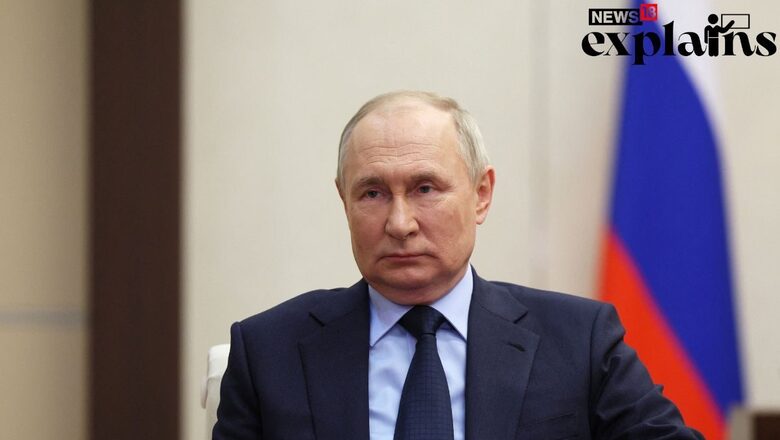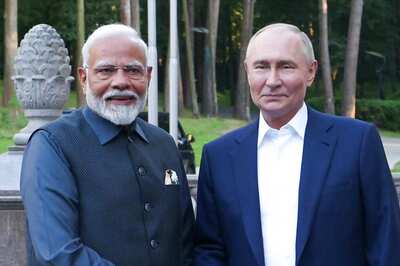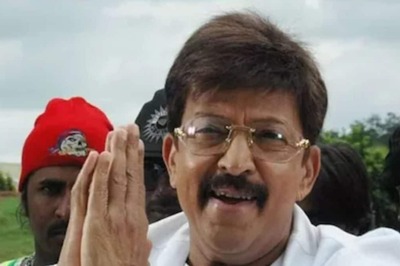
views
The Israel-Hamas conflict, that has reached on for a month, has stoked tensions not only in the Middle East but involved global powers as well. While the US has emerged as one of biggest backers of the Israel, Russia has been quick to condemn the attack on Palestinian civilians in Gaza.
The Russian involvement in the Israel-Hamas war goes at many levels: Russia’s opposition to the West and its allies including Israel; Moscow’s proximity to Iran, whose affiliated groups like Lebanese militant group Hezbollah and Hamas have been attacking Israel; and Russia’s changing foreign policy making it closer to Hamas.
Initially Russia’s response to violence between Israel and Hamas last month was balanced and muted as it tried to weighs up its competing alliances. However, the country has shifted its foreign relations towards the side of Iran-backed Hamas, surprising many international experts.
As of now, Russia stands benefitted from the war as Putin has strengthened its position as a global player and diverted the world attention away from Ukraine.
Russia’s Pro-Palestinian Position
Russia used to enjoy good relations with Israel as President Benjamin Netanyahu used to call Russian President Vladimir Putin his “dear friend.” Netanyahu has visited Russia more than 10 times since 2015, according to Time.
However, the relationship between Russia and Israel has cooled following Ukraine war in 2022 as the Western nations armed Kyiv.
Putin last month also hosted a group of high-ranking members of Hamas in Moscow. The meetings showed how Russia, apart from backing Hamas, is trying to retain the role of an important power broker in the Middle East.
However, the Russian Foreign Ministry statement said that the meetings were part of Russia’s efforts to secure the release of hostages from Gaza. Russia defended its decision to host Hamas members, saying it is important to maintain ties with both sides in the conflict.
The Palestinian militant groups’ visit to Moscow have added to Israeli fears that Russia is realigning its foreign policy to move closer to Hamas.
Ties with Iran
The Ukraine war has strengthened the military ties between Russia and Iran, as Iran supplies drones and other military equipment to Moscow. Russia has also backed Iran-led groups in Syrian Civil War.
“Russia’s war in Ukraine has driven closer military ties with Iran. Hamas officials have visited Moscow at least three times since Russia invaded Ukraine,” Nigel Gould-Davies, a senior fellow at the International Institute for Strategic Studies, told AFP.
In the last conflict in Gaza, Russia has positioned itself as a potential peacemaker with the support of Iran.
Weaken the West
Putin has always viewed international conflicts as an extension of the clash between Western states and the rest of the world, with Russia leading from the other front. While Putin has openly blamed Washington for the turmoil in the Middle East, Moscow will lean towards its ally Iran and its supported groups Hezbollah and Hamas.
Tatiana Stanovaya, head of R.Politik, a political analysis firm based in France, said that the crisis “helps to fan anti-Western narratives by attributing general global instability and the reopening of historic disputes to the West.”
Furthermore, Putin wants to shape a new world order together with China as well as Moscow allies in Iran and North Korea. Recently, Putin also met China’s Xi Jinping and reiterated its strong ties with Beijing.
Shifting Attention from Ukraine to Gaza
The crisis following the Israel-Hamas War has successfully diverted international attention from Ukraine, which has battled to repel Russia’s invasion for more than 600 days. The war helps Russia distracts and dilutes Western focus on Ukraine and divert their funds towards Israel.
Alexander Gabuev, the Berlin-based director of Carnegie Russia Eurasia Center, said he expected senior US officials such as US Secretary of State Antony Blinken and National Security Adviser Jake Sullivan to spend much of their time on the Middle East crisis in the coming months.
Kremlin propagandists are happy hoping that the unrest in the Middle East will divert Western support from Kyiv, making it easier for Moscow to consolidate its territorial control over parts of Ukraine, according to Time.

















Comments
0 comment